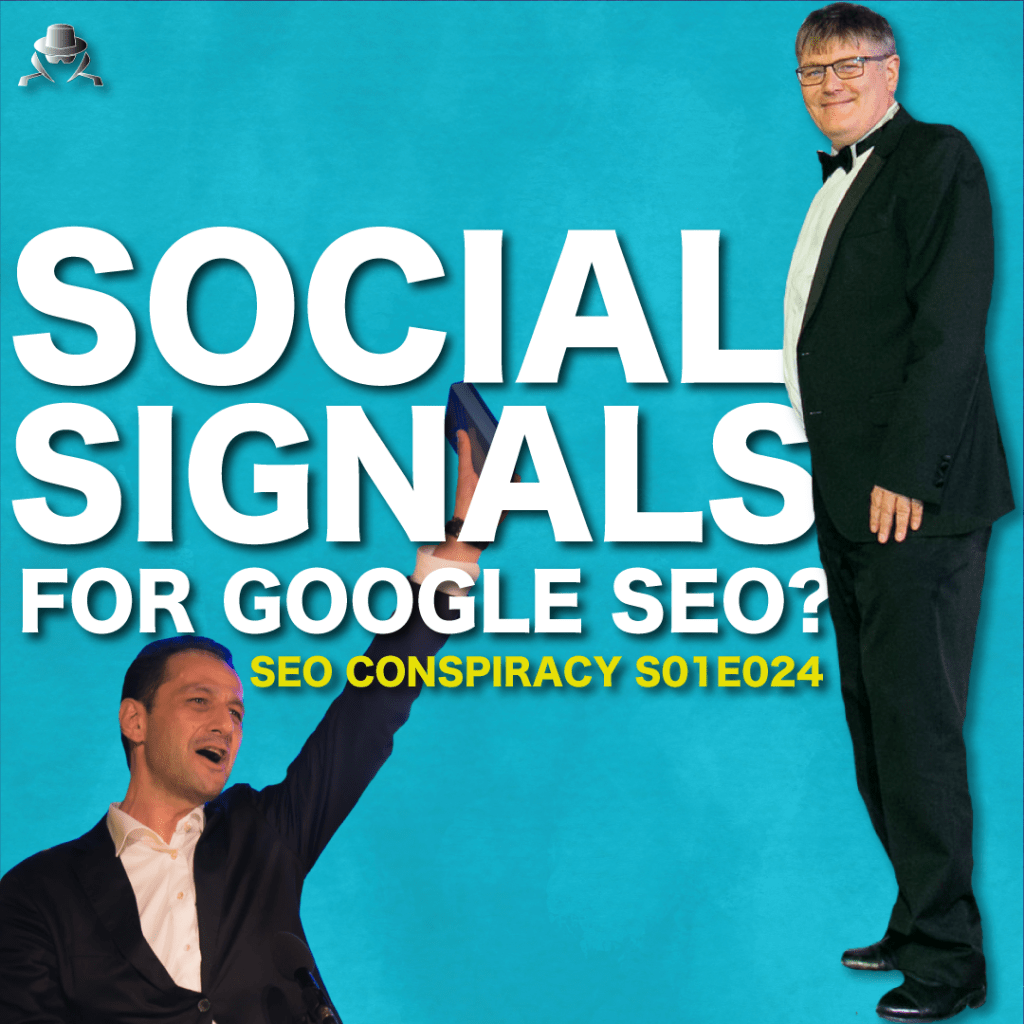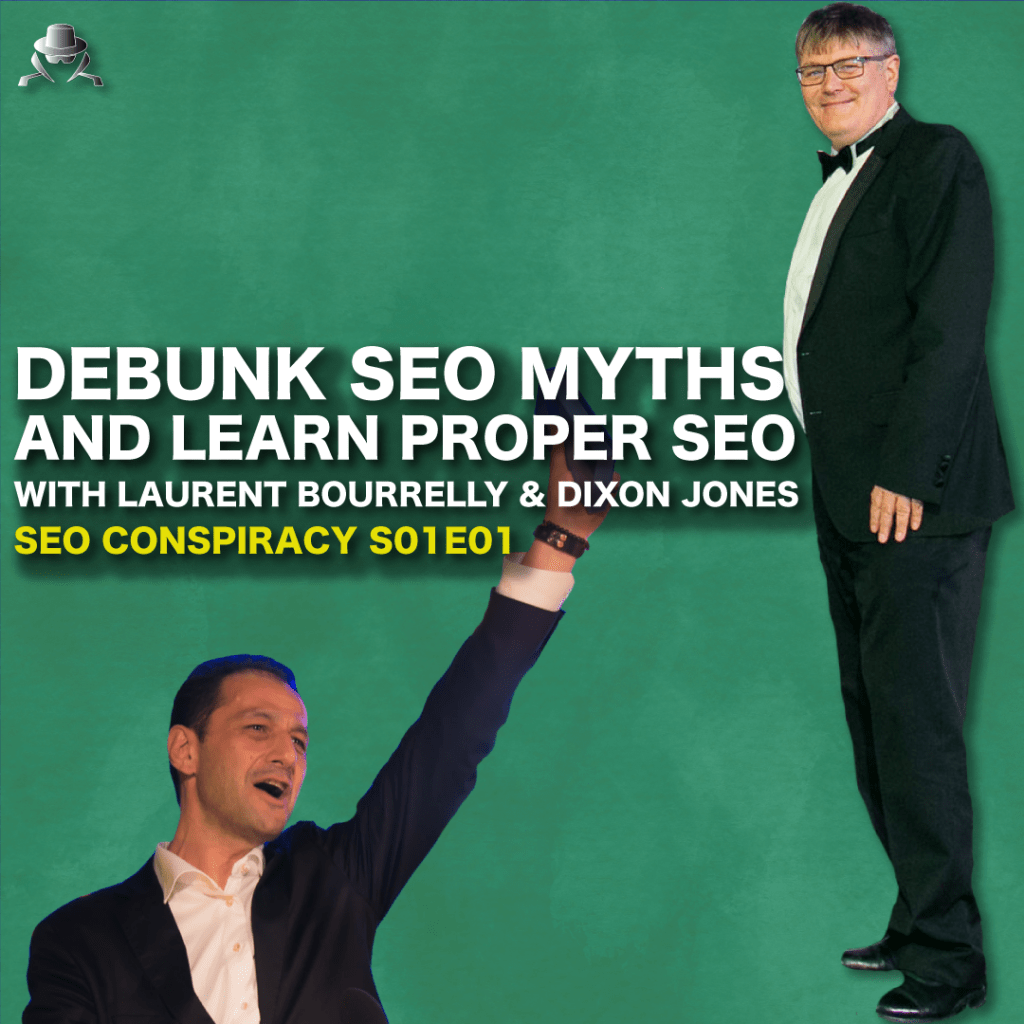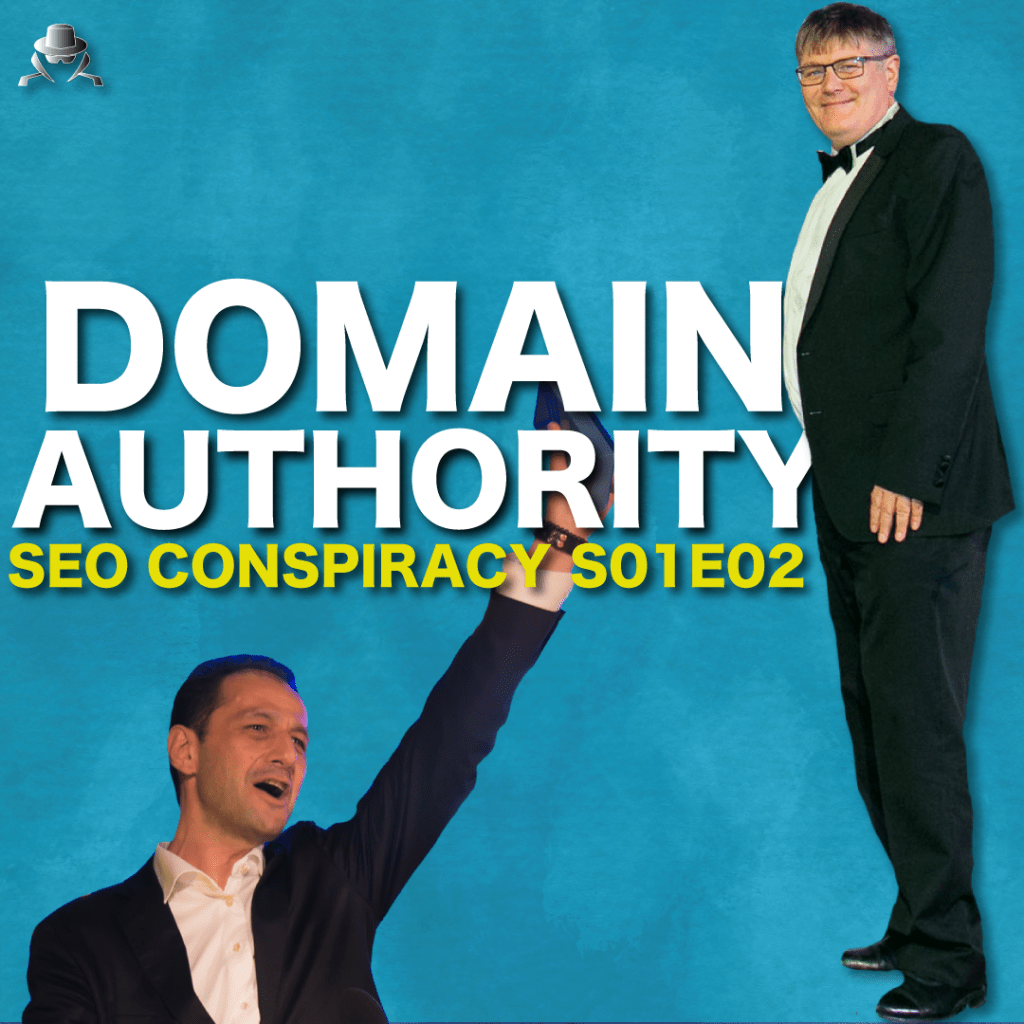It’s even more than a myth, it became a trend of you’ve got to push social to help your SEO. Is this true?
SEO CONSPIRACY S01E24
I think you’re gonna find it quite tough to find strong evidence that social tweets & things directly affect SEO.
However, I think that social stuff does affect your brand and does affect your traffic and I think both of those factors indirectly
will have an effect on your SEO.
So it’s one of those things where, you know, it’s my pet peeve, I hate saying it depends but my point is that most social signals or social actions don’t directly affect Google but the indirect effects may affect your search engine rankings
It’s part of the mix, everything around SEO, but it’s not just social, it’s everything you’re gonna do around SEO, it’s even your branding offline. I like in the chemical sense when you stir a pot, you need to agitate, you need to put some agitation around the content.
Google wants to see that there is something happening and it’s not only links.
The problem is that a lot of people think that they don’t need to build backlinks if they do enough of this agitation around the content.
No, backlinks is still the strongest the level you pull. If you want action-reaction, nothing better than backlinks.
I’ve done some experiments and the last time I did one, it was live during a conference. The conference was about Local SEO and so at the beginning we asked everyone (about 200 or 300 people were in the room) to open their mobile, search for restaurant+town and click on the 5th result.
By the end of the conference, the website went up in the Google box with the map.
It can react quite quickly, it’s a social signal.
But it’s a flow that comes in and out and moves around the content, it’s not just the count of likes and remember that whatever you do in Facebook, Facebook doesn’t like Google so it doesn’t allow a lot.
There is another way to answer this question and then say that absolutely social affects organic search and you don’t have to go very far to see it because if you type in the name of someone well-known, then there’s a very strong chance that apart from your normal sites you’re gonna see the Twitter profile in the results so absolutely that Twitter profile is a web page it’s a scrollable web page, it’s in the results, it knows who it is and if you’re in the knowledge graph as well it’s the individual as well.
So right there, right in front of you are social results.
I always say you don’t know how to see, Google is telling you everything, you just have to learn how to see and not just watch, see through, it’s telling you everything, you need to learn.
And it’s obvious if your social pages are ranking high it means they have a lot of value.
The Internet is a very fickle movable, changeable and a fleetingly measurable system and if traffic is coming through a social route or if your audience are affected by a social signal then I suspect that social signal will indirectly start affecting what Google interprets in its results.
I don’t think that Google has gone up one day or googled engineers have necessary got up one day & said “right we are going to have a look at the number of likes that the Facebook Likes” and have that as a signal I don’t think that’s the way that they’re doing things, not least because those number of likes on Facebook can be faked but that’s a sitting there saying “right okay this page is all mostly important because you know it’s got all these likes and these reviews”
It’s always gonna come up when people are gonna make a study and say okay the average of pages in the top 5 have at least 200 likes from
Facebook. Again, you’re taking the wrong path, you are trying to fit the answer to your question that’s the easy way out to a problem and that’s wrong, because you’re pushing people in the wrong direction to go about it because it doesn’t mean that if your page has 200 likes it’s gonna rank in the top three.
Once, again, correlation doesn’t mean causality.
And basically if you’ve gone to fiverr.com, you can get those 200 likes anyway.
The problem is that Google became an “agent qualifiant”, like a recommendation trust source, you trust Google: “okay if it’s number one on Google it must be a good reliable source”
It’s one of the fundamental reasons why I think that Facebook is actually much more of a competitor than most people realize to Google because you used to believe that when you go to Google and say what’s the best pizza in town you’d get the right answer but now people go to Facebook and ask their friends exactly the same question because the votes from their friends that they trust more than the votes from the linked systems and things that Google’s used and I think this is core to the challenges of the Google’s Facebook’s and Microsoft’s or Amazon’s for that matter of today and what they’re trying to do and overall what’s happening is that humans are going back to starting to trust their echo chambers which is also dangerous but in a different way and probably the overall number of searches on Google isn’t going up these days. In the last quarter report they say it went up because of the covid situation but it was just that part. Overall it’s going down and we haven’t mentioned one very important thing because our topic is about social signals.
But the Dark social. Like, if I share a link on zoom, on skype, on WhatsApp, that’s equals to most actually of the sharing going on in social and that’s not visible by Google.
Well they can see the output they can see people going on the site and everything can chrome it’s an indirect effect.
Social has an indirect effect but this dark social thing is and there’s a tool that claimed that it was able to track the dark social so I tested it and I was very disappointed because it’s just putting a tag in the URL so he can find it when it comes back out but that’s it.
To summarize, Social is part of the mix, you should take it into account but don’t just focus on that it’s part of the whole thing.
Social is a hugely important and a very immediate part of your media marketing needs because social can react so quickly and give you instant gratification.
Listen to the podcast
Watch the video
Latest posts



